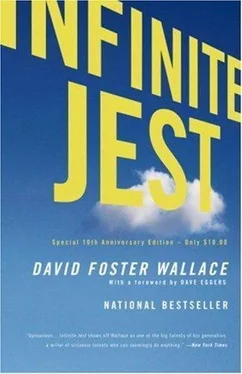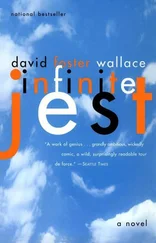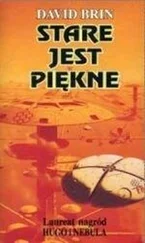… (7) Ms. Steeples, to my way of thinking, the word “abuse” is vacuous. Who can define “abuse”? The difficulty with really interesting cases of abuse is that the ambiguity of the abuse becomes part of the abuse. Thanks over the decades to the energetic exercise of your own profession, Ms. Steeley, we have all heard ACOAs and AlaTeens and ACONAs and ACOGs and WHINERS relate clear cases of different kinds of abuse: beatings, diddlings, rapes, deprivations, domineerment, humiliation, captivity, torture, excessive criticism or even just utter disinterest. But at least the victims of this sort of abuse can, when they have dredged it back up after childhood, confidently call it “abuse.” There are, however, more ambiguous cases. Harder to profile, one might say. What would you call a parent who is so neurasthenic and depressive that any opposition to his parental will plunges him into the sort of psychotic depression where he does not leave his bed for days and just sits there in bed cleaning his revolver, so that the child would be terrified of opposing his will and plunging him into a depression and maybe causing him to suicide? Would that child qualify as “abused”? Or a father who is so engrossed by mathematics that he gets engrossed helping his child with his algebra homework and ends up forgetting the child and doing it all himself so that the child gets an A in Fractions but never in fact learns fractions? Or even say a father who is extremely handy around the house and can fix anything, and has the son help him, but gets so engrossed in his projects (the father) that he never thinks to explain to the son how the projects actually get done, so that the son’s “help” never advances past simply handing the father a specified wrench or getting him lemonade or Phillips-head screws until the day the father is crushed into aspic in a freak accident on the Jamaica Way and all opportunities for transgenerational instruction are forever lost, and the son never learns how to be a handy homeowner himself, and when things malfunction around his own one-room home he has to hire contemptuous filthy-nailed men to come fix them, and feels terribly inadequate (the son), not only because he is not handy but because this handiness seemed to him to have represented to his father everything that was independent and manly and non-Disabled in an American male. Would you cry “Abuse!” if you were the unhandy son, looking back? Worse, could you call it abuse without feeling that you were a pathetic self-indulgent piss-puddle, what with all the genuine cases of hair-raising physical and emotional abuse diligently reported and analyzed daily by conscientious journalists (and profiled?)?
I am not sure whether you could call this abuse, but when I was (long ago) abroad in the world of dry men, I saw parents, usually upscale and educated and talented and functional and white, patient and loving and supportive and concerned and involved in their children’s lives, profligate with compliments and diplomatic with constructive criticism, loquacious in their pronouncements of unconditional love for and approval of their children, conforming to every last jot/tittle in any conceivable definition of a good parent, I saw parent after unimpeachable parent who raised kids who were (a) emotionally retarded or (b) lethally self-indulgent or (c) chronically depressed or (d) bor- derline psychotic or (e) consumed with narcissistic self-loathing or (f) neurotically driven/addicted or (g) variously psychosomatically Disabled or (h) some conjunctive permutation of (a) … (g) Now, Orin had never once walked S. Johnson. Orin was not even all that keen on S. Johnson, because the dog was always trying to mate with his left leg. And anyway, S. Johnson was very much Mrs. Incandenza’s dog, and was normally exercised only by Mrs. Incandenza, and at rigidly specific times of day.
.
Why is this. Why do many parents who seem relentlessly bent on producing children who feel they are good persons deserving of love produce children who grow to feel they are hideous persons not deserving of love who just happen to have lucked into having parents so marvelous that the parents love them even though they are hideous?
Is it a sign of abuse if a mother produces a child who believes not that he is innately beautiful and lovable and deserving of magnificent maternal treatment but somehow that he is a hideous unlovable child who has somehow lucked in to having a really magnificent mother? Probably not.
But could such a mother then really be all that magnificent, if that’s the child’s view of himself?
I am not speaking about my own mother, who was decapitated by a plummeting rotorblade long before she could have much effect one way or the other on my older brother and innocent younger sister and me.
I think, Mrs. Starkly, that I am speaking of Mrs. Avril M.-T. Incandenza, although the woman is so multileveled and indictment-proof that it is difficult to feel comfortable with any sort of univocal accusation of anything. Something just was not right, is the only way to put it. Something creepy, even on the culturally stellar surface. For instance, after Orin had pretty clearly killed her beloved dog S. Johnson in a truly awful if accidental way, and then had tried to evade responsibility for it with a lie that a parent far less intelligent than Avril could have seen right through, Mrs. Inc’s response was not only not conventionally abusive, but seemed almost too unconditionally loving and compassionate and selfless to possibly be true. Her response to Orin’s pathetic pulverize-and-run-driver lie was not to act credulous so much as to act as if the entire grotesque fiction had never reached her ears. And her response to the dog’s death itself was bizarrely furcated. On the one hand, she mourned S. Johnson’s death very deeply, took the leash and collar and canine nubbin tenderly and arranged lavish memorial and funeral arrangements, including a heartbreakingly small cherrywood coffin, cried in audible private for weeks, etc. But the other half of her emotional energies went into being overly solicitous and polite toward Orin, upping the daily compliment-and-reinforcement-dose, arranging for favorite foods at E.T.A. meals, having his favorite little tennis appurtenances appear magically in his bed and locker with loving notes attached, basically making the thousands of little gestures by which the technically stellar parent can make her child feel particularly valued 0— all out of concern that Orin in no way think she resented him for S. Johnson’s death or blamed him or loved him less in any way because of the whole incident. Not only was there no punishment or even visible pique, but the love-and-support-bombardment increased. And all this was coupled with elaborate machinations to keep the mourning and funeral arrangements and moments of wistful dog-remembrance hidden from Orin, for fear that he might see that the Moms was hurt and so feel bad or guilty, so that in his presence Mrs. Inc became even more cheerful and loquacious and witty and intimate and benign, even suggesting in oblique ways that life was now somehow suddenly better without the dog, that some kind of unrecognized albatross had been somehow removed from her neck, and so on and so forth.
What does a trained analyst of our cultural profile’s soft contours like yourself make of this, Mrs. Starksaddle? Is it mind-bogglingly considerate and loving and supportive, or is there something … creepy about it? Maybe a more perspicuous question: Was the almost pathological generosity with which Mrs. Inc responded to her son taking her car in an intoxicated condition and dragging her beloved dog to its grotesque death and then trying to lie his way out of it, was this generosity for Orin’s sake, or for Avril’s own? Was it Orin’s “self-esteem” she was safeguarding, or her own vision of herself as a more stellar Moms than any human son could ever hope to feel he merits?
Читать дальше












